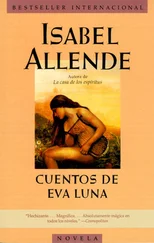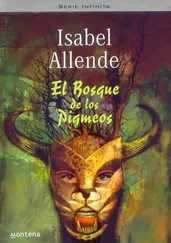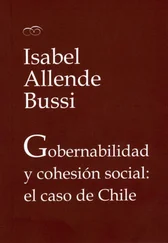Isabel Allende - Zorro
Здесь есть возможность читать онлайн «Isabel Allende - Zorro» весь текст электронной книги совершенно бесплатно (целиком полную версию без сокращений). В некоторых случаях можно слушать аудио, скачать через торрент в формате fb2 и присутствует краткое содержание. Год выпуска: 2005, ISBN: 2005, Издательство: Harper Perennial, Жанр: Исторические приключения, на английском языке. Описание произведения, (предисловие) а так же отзывы посетителей доступны на портале библиотеки ЛибКат.
- Название:Zorro
- Автор:
- Издательство:Harper Perennial
- Жанр:
- Год:2005
- ISBN:9780060779009
- Рейтинг книги:3 / 5. Голосов: 1
-
Избранное:Добавить в избранное
- Отзывы:
-
Ваша оценка:
- 60
- 1
- 2
- 3
- 4
- 5
Zorro: краткое содержание, описание и аннотация
Предлагаем к чтению аннотацию, описание, краткое содержание или предисловие (зависит от того, что написал сам автор книги «Zorro»). Если вы не нашли необходимую информацию о книге — напишите в комментариях, мы постараемся отыскать её.
Zorro — читать онлайн бесплатно полную книгу (весь текст) целиком
Ниже представлен текст книги, разбитый по страницам. Система сохранения места последней прочитанной страницы, позволяет с удобством читать онлайн бесплатно книгу «Zorro», без необходимости каждый раз заново искать на чём Вы остановились. Поставьте закладку, и сможете в любой момент перейти на страницу, на которой закончили чтение.
Интервал:
Закладка:
She was shocked by how much she had changed. She looked at herself in the mirror and could find no trace of Toypurnia; she saw only a woman with hard eyes and clenched lips. The need to live in a world foreign to her, and to stay out of trouble, had made her cautious and underhanded; she rarely confronted her husband, she preferred to act behind his back. Alejandro de la Vega never suspected that she was talking to Diego in her own tongue, so he was unpleasantly surprised when the first words out of his son’s mouth were in the Indian language. If he had known that his wife used each of his absences to take the child to visit his mother’s tribe, he would have exerted his authority.
Whenever Regina appeared in the Indian village with Diego and Bernardo, grandmother White Owl abandoned her chores and devoted herself completely to them. The tribe had been reduced through mortal illness and by the number of braves who had been recruited by the Spanish; barely twenty families remained, more miserable every day. The grandmother filled the young boys’ heads with myths and legends of her people; she cleansed their hearts with the smoke of the sweet grass she used in her ceremonies and took them with her to pick magical plants.
As soon as they were able to stand firmly on their two feet and hold a stick, she had the braves teach them to fight. They learned to fish with sharpened wands, and to hunt. She gave each of them a whole deerskin, complete with head and horns, to wear during the hunt; that was how they would stalk a deer. They waited, motionless, until their prey wandered near, and then shot their arrows. The growing presence of the Spanish had made the Indians submissive, but when Toypurnia-Regina was around, their blood was fired with the memory of the war of honor she had led. Their awed respect for her was translated into affection for Diego and Bernardo. They treated both as their sons.
It was White Owl who took the boys to explore the caves near the de la Vega hacienda. She taught them to read the symbols carved on the walls a thousand years before, and showed them how to use them as a map. She explained that the caves were divided into seven sacred directions, a basic map for spiritual journeys, which is why in ancient times initiates had gone there to seek their own centers, which ideally should coincide with the center of the world, where life originates.
When that correspondence was reached, the grandmother informed them, a luminous flame from the bowels of the earth blazed up and danced in the air for a long while, bathing the initiate with light and warmth. She explained that the caves were natural temples, and that they were protected by a higher energy, and that was why they should enter them only with good in mind. “Whoever goes in with bad intentions will be swallowed up, and after a while the cave will spit out his bones,” she told them. She added that if you help others, as the Great Spirit commands, a space in your body opens to receive blessings; that is the only way to prepare yourself for okahue.
“Before the whites came, we went to those caves to seek harmony and find okahue, but no one goes now,” White Owl told them.
“What is okahue?” Diego asked.
“The five basic virtues: honor, justice, respect, dignity, and courage.”
“I want all those, Grandmother.”
“You must pass many tests, without crying,” White Owl replied curtly.
From that day on, Diego and Bernardo began to explore the caves on their own. Before they were able to memorize the petroglyphs to guide them, as their grandmother had told them to do, they marked their route with pebbles. They invented their own ceremonies, inspired by what they had heard and seen in the tribe, and by the stories of White Owl.
They asked the Great Spirit of the Indians, and Padre Mendoza’s God, to allow them to be granted okahue, but they never saw the flames blaze up and dance in the air, as they hoped. Their curiosity, however, did lead them to a natural passage. They had moved some rocks to lay out a medicine wheel on the ground, like the ones the grandmother traced: thirty-six stones in a circle and one in the center, out of which led four straight roads. When they moved a round stone that they had intended to set in the center of the circle, several others rolled away, uncovering a small entrance. Diego, who was slimmer and more agile, crawled inside and discovered a tunnel that quickly opened up enough for him to stand. The boys returned with candles and picks and shovels, and in the following weeks worked at widening the passageway.
One day the tip of Bernardo’s pick opened a little hole that let in a ray of light; enchanted, the boys discovered that they had come out smack in the rear of the huge fireplace in the living room of the de la Vega hacienda. A few mournful chimes from the grandfather clock welcomed them. Many years later they would learn that the site of the house had been chosen by Regina precisely because it was close to the sacred caves.
After their discovery, Diego and Bernardo set about strengthening the tunnel with boards and rocks, since the clay walls tended to crumble, and they also opened a hidden door in the bricks of the fireplace to connect the caves with the house. The hearth was so tall, wide, and deep that a cow could stand inside, a fitting dimension for the dignity of that room, which was never used to entertain guests but sometimes accommodated Alejandro de la Vega’s political meetings. The furniture, rough and uncomfortable, like that in the rest of the house, was lined up around the walls, as if they were for sale in a carpenter’s shop, accumulating dust and that rancid smell old furniture gets. The most prominent object in the room was an enormous oil of Saint Anthony ancient, bone-thin, covered with sores, and wearing rags in the act of rejecting Satan’s temptations, one of those horrors commissioned by the square unit in Spain and greatly appreciated in California. In a corner of honor, where they could be admired, were the staff and trappings of the alcalde’s office, which the owner of the house used in performing official duties. Those ranged from major matters, such as laying out streets, to trivial ones like granting permission for serenades; after all, if that were left to the wishes of smitten suitors, no one in the town would have slept. Hanging from the ceiling above a great table of cedar wood was an iron lamp the size of a cart wheel; it was set with one hundred and fifty candles that had never been lit because no one had the spirit to lower the huge contraption to light them. On the few occasions the room was opened they used oil lamps. The fireplace was never lighted either, although a fire was always laid with large logs. Diego and Bernardo got into the habit of coming back from the beach by using a shortcut through the caves, emerging like ghosts into the dark hollow of the fireplace. They had sworn, with the solemnity of children absorbed in their games, never to share that secret with anyone. They had also promised White Owl that they would enter the caves for good purposes only, and not for trivial games, but for them everything they did there was part of their training for okahue.
More or less during the same period that White Owl was nourishing the children’s indigenous roots, Alejandro de la Vega was beginning Diego’s education as an hidalgo. That was the year two trunks arrived from Europe, sent by Eulalia de Callis as gifts. Her husband, the former governor Pedro Fages, had dropped dead in Mexico City, felled by one of his rages. He collapsed like a sack at his wife’s feet during one of their fights, ruining her digestion forever because she blamed herself for having killed him. After spending a lifetime arguing with him, Eulalia sank into a deep depression when she found herself widowed; finally she realized how much she would miss her rotund husband. She knew that no one could replace such a stupendous man, a bear hunter and a great soldier, the only man she had ever known who could stand up to her. The tenderness she had never felt for him when he was alive smote her like a plague when she saw him in his coffin, and for her remaining years would continue to haunt her with memories that grew more vivid over time. Finally, weary of weeping, she followed the advice of her friends and her confessor and returned to Barcelona, where she had been born, and where she could enjoy the support of her fortune and her powerful family. From time to time she remembered Regina, whom she thought of as her protegee, and she wrote her on fine Egyptian paper imprinted with her coat of arms in gold. In one of those letters they learned that the Fages’s son had died of the plague, leaving Eulalia even more disconsolate.
Читать дальшеИнтервал:
Закладка:
Похожие книги на «Zorro»
Представляем Вашему вниманию похожие книги на «Zorro» списком для выбора. Мы отобрали схожую по названию и смыслу литературу в надежде предоставить читателям больше вариантов отыскать новые, интересные, ещё непрочитанные произведения.
Обсуждение, отзывы о книге «Zorro» и просто собственные мнения читателей. Оставьте ваши комментарии, напишите, что Вы думаете о произведении, его смысле или главных героях. Укажите что конкретно понравилось, а что нет, и почему Вы так считаете.











